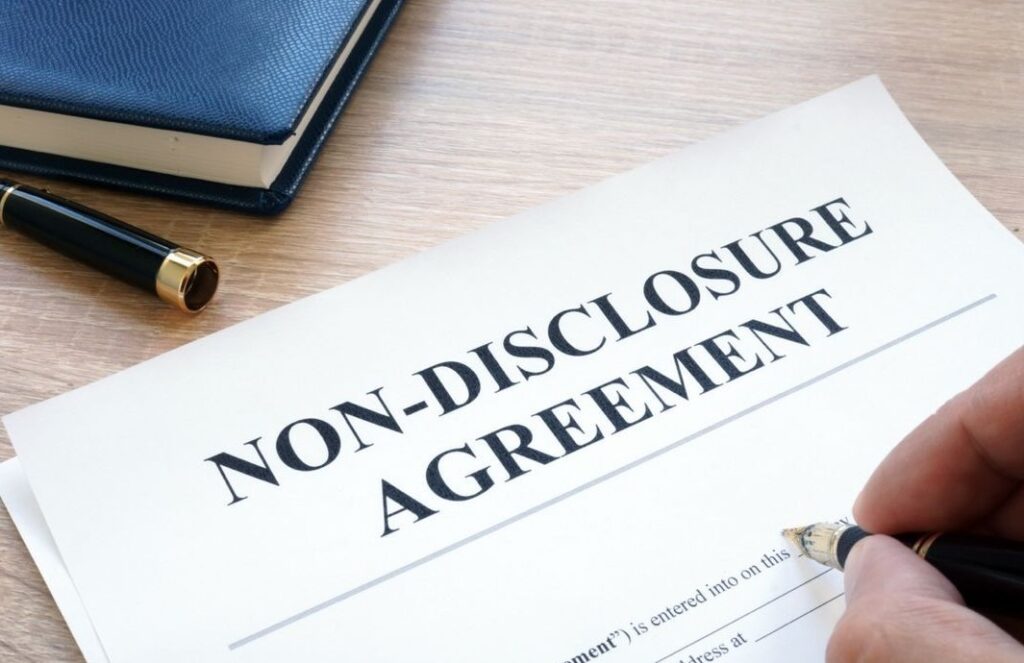When you’re exploring a business for sale in Canada, confidentiality is a critical part of the process. One of the most essential legal tools used during negotiations is a Non-Disclosure Agreement (NDA). Whether you’re a buyer or a seller, understanding how NDAs work can protect your interests and help ensure a smooth transaction.
In this article, we’ll cover what an NDA is, why it’s important in a business sale, and what you should include in yours. We’ll also explore how NDAs tie into legal considerations when buying a business in Canada, and how they affect due diligence.

What Is an NDA?
A Non-Disclosure Agreement (NDA) is a legally binding contract between two or more parties that restricts the sharing of confidential information. In the context of buying or selling a business, NDAs prevent potential buyers from disclosing sensitive data about the business to third parties.
Examples of sensitive information protected by an NDA include:
-
Financial statements
-
Customer lists
-
Employee details
-
Business strategies
-
Trade secrets
By signing an NDA, the buyer agrees to keep all disclosed information confidential, even if they decide not to purchase the business.
Why Is an NDA Important in a Business Sale?
When a seller lists a business for sale in Canada, they often reveal private details that give the buyer a full picture of the opportunity. Without an NDA in place, there’s a risk that the buyer could:
-
Share the information with competitors
-
Use the insights to start a competing business
-
Leak the sale, causing panic among employees or customers
For this reason, NDAs are typically signed before due diligence begins. This protects the seller while still giving the buyer enough data to make an informed decision.
What Should Be Included in an NDA?
While there’s no one-size-fits-all template, a good NDA for a business sale in Canada will typically include:
-
Definition of Confidential Information
A clear list of what is considered confidential, including both tangible and intangible data. -
Obligations of the Receiving Party
The buyer must agree to use the information solely for the purpose of evaluating the business opportunity. -
Exclusions
Common exclusions include public information or data the buyer already knew prior to signing the NDA. -
Time Period
Most NDAs specify a term (e.g., 1–3 years) during which the information must remain confidential. -
Consequences of Breach
The agreement should outline legal remedies if the NDA is violated.
It’s always advisable to consult with legal counsel to ensure your NDA aligns with Canadian business law.
NDAs and the Due Diligence Process
During due diligence, a buyer gains access to sensitive details like financial performance, supplier contracts, and employment agreements. This is the most information-heavy part of a business transaction, and where an NDA plays its most important role.
If you’re unsure what’s involved in due diligence, our Legal Considerations Before Buying a Business in Canada blog post provides a helpful overview.
Are NDAs Enforceable in Canada?
Yes, NDAs are enforceable in Canadian courts as long as they:
-
Are reasonable in scope and duration
-
Do not conflict with public interest
-
Clearly define the confidential material
If you’re listing a small business for sale in Ontario, British Columbia, Alberta or elsewhere in Canada, an NDA should always be part of your transaction checklist.
Final Word
NDAs may seem like just another legal formality, but they are crucial to protecting your business throughout the sales process. If you’re currently planning to buy a business in Canada or are preparing to sell, make sure your NDA is professionally drafted and understood by all parties involved.
For more insights on buying, selling, or valuing businesses, check out our latest blogs at businesses4salecanada.ca, or browse our current business listings in Canada.

